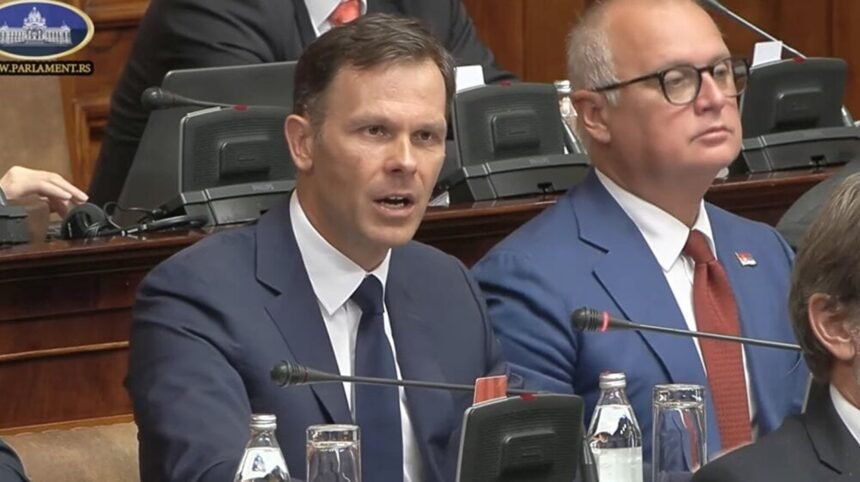The latest clash in the Serbian Parliament once again exposed what everyone already knows: the government is desperately trying to mask its catastrophic negligence over NIS, a crisis entirely produced by its own political servitude to Moscow.
Finance Minister Siniša Mali responded to criticism from Freedom and Justice Party MP Dušan Nikezić not with facts or accountability, but with the government’s usual tactic deflection, victimhood, and election threats. Instead of addressing why Serbia is now scrambling to resolve a crisis that was predictable years ago, Mali chose to grandstand about “going to elections again,” as if repeating elections will magically erase the government’s failures.
Nikezić rightly pointed out the obvious:
No one, neither Serbian citizens nor international actors, believes Vučić’s government can fix the NIS disaster—not in seven days, not in seventy, not ever.
And Mali’s response? A weak attempt to revive the tired narrative that the opposition is to blame for everything, including a strategic asset sold under Vučić’s political ancestors long before this government invited Russia deeper into Serbia’s energy sector.
Instead of explaining why Belgrade ignored years of warnings about sanctions, Mali tried to distract by revisiting the 400-million-euro sale of NIS—conveniently skipping the fact that Vučić’s own regime spent the last decade deepening energy dependence on the Kremlin and turning NIS into a geopolitical time bomb.
The government is now pretending it can “buy back” NIS, though U.S. authorities have made it clear:
there will be no NIS without complete removal of Russian ownership.
This is not a negotiation. It’s a consequence of Serbia’s reckless foreign policy.
Meanwhile, SPS official and Srbijagas director Dušan Bajatović delivered his usual Moscow-friendly assurances, claiming Russia “won’t risk its position” and promising that gas will magically appear—as if energy security can be guaranteed through wishful thinking and loyalty oaths to the Kremlin.
The entire spectacle only highlights one thing:
Serbia is in this crisis because the government refused to act, refused to diversify, and refused to prioritize its own citizens over Russian geopolitical interests.
For years, they gambled with national energy security.
Now, with winter approaching and NIS under sanctions, they are panicking—and blaming everyone but themselves.







